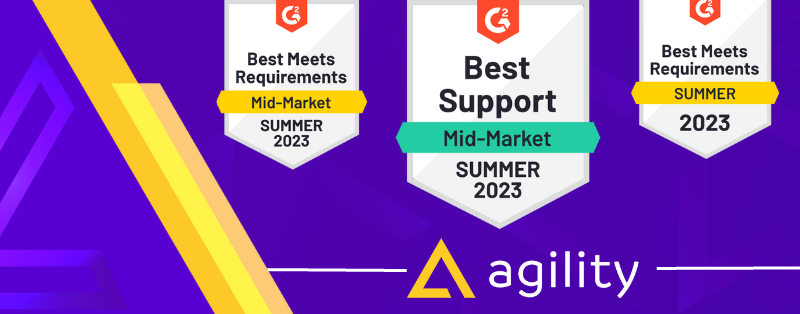"Composable Commerce" is rapidly reshaping the way businesses build, manage, and optimize their online platforms. This innovative approach signifies a significant departure from traditional, monolithic e-commerce systems, steering towards a more modular, flexible architecture. But what prompts this pivotal shift towards Composable Commerce migration?
Businesses are starting to tune into the limitations of rigid, one-size-fits-all e-commerce solutions. In its place, Composable Commerce offers an architecture that is not just responsive to current needs but is also future-proof, enabling e-commerce brands to continually evolve and craft bespoke customer experiences, integrate cutting-edge technologies seamlessly, and adapt swiftly to market changes. This agility is becoming a crucial factor for businesses that aim to stay relevant and competitive in a fast-paced digital marketplace.
The choice to migrate towards Composable Commerce is also a strategic response to the growing need for cost-effective solutions. With the ability to selectively invest in and upgrade specific components, businesses can optimize their investments, focusing on areas that deliver the most significant impact on customer satisfaction and operational efficiency. Whereas in the past, with one digital solution not performing well, e-commerce businesses would have to replace an incredibly robust and complicated system, now, with Composable Commerce Migrations, businesses are replacing the microservice they don't need, one step at a time.
In essence, the migration to Composable Commerce is more than just a technological upgrade; it's a strategic realignment toward a more agile, customer-centric, and innovative business model.
The Benefits of Composable Commerce Migration
Enhanced Flexibility and Scalability
One of the primary advantages of Composable Commerce is its flexibility. Businesses can select and integrate the best components for their specific needs rather than being constrained by the limitations of a single vendor's system. This modularity also allows for easier scaling, adapting more readily to changing business needs.
Improved Customer Experiences
With the ability to rapidly implement and modify components, companies can quickly respond to market trends and customer preferences, offering a more personalized and engaging shopping experience.
Faster Time-to-Market
Composable Commerce enables quicker deployment of new features and updates, reducing time-to-market and allowing businesses to stay ahead of the competition.
Cost-Effectiveness
Though the initial investment may be significant, the long-term costs can be lower. With Composable Commerce, businesses only invest in the components they need, reducing unnecessary expenditure on unused functionalities.
Challenges in Composable Commerce Migration
Complexity of Integration
One of the biggest challenges is integrating various components into a cohesive system. This requires careful planning and expertise in both the selected platforms and the underlying architecture.
Data Migration
Transferring data from a monolithic system to a composable architecture can be complex and risky. It's crucial to ensure data integrity and security during this transition.
Change Management
Adopting a new commerce platform involves significant changes in business processes and operations. Effective change management is essential to ensure a smooth transition and user adoption.
Best Practices for Composable Commerce Migration
Strategic Planning
Start with a clear strategy that aligns with your business objectives. Assess your current capabilities, identify gaps, and determine the components you need for your Composable Commerce platform.
Choose the Right Partners
Selecting the right technology partners is critical. Look for providers with proven expertise in Composable Commerce and a strong ecosystem of compatible components. Check out Agility's Marketplace and tech partners.
Incremental Approach
Consider an incremental approach to migration. Start with migrating one or two components and gradually expand. This reduces risk and allows for learning and adjustments along the way.
Focus on User Experience
Keep user experience at the forefront. The goal of migration is to enhance the customer journey, so ensure that each component adds value to the customer experience.
Continuous Testing and Optimization
Regularly test and optimize each component. Continuous improvement is key in a landscape that's constantly changing.
Embracing Agility for Future-Proof Commerce: The Role of Agility CMS in Composable Commerce Migration
Composable Commerce migration represents a significant leap forward in how businesses approach e-commerce. By adopting a modular, flexible architecture, companies can create more personalized, scalable, and efficient e-commerce experiences. While the journey involves challenges and requires careful planning and execution, the benefits of increased agility, better customer engagement, and operational efficiency make Composable Commerce a compelling strategy for businesses aiming to thrive in the digital age.
In this context, platforms like Agility CMS play a crucial role. As a leading Content Management System, Agility CMS offers the flexibility, scalability, and ease of integration essential for modern e-commerce solutions. It empowers businesses to seamlessly integrate various e-commerce components and manage their digital content effectively. By leveraging the capabilities of Agility CMS, businesses can ensure a smoother migration to Composable Commerce, paving the way for a future where adaptability and customer-centricity are at the forefront of digital commerce success.




